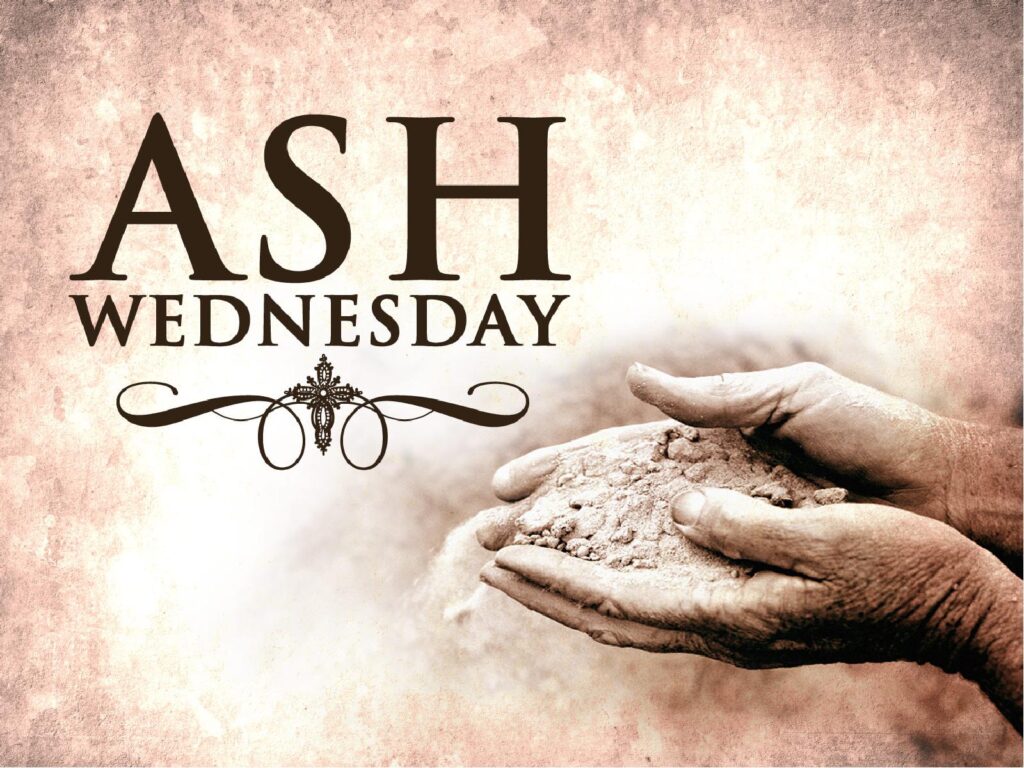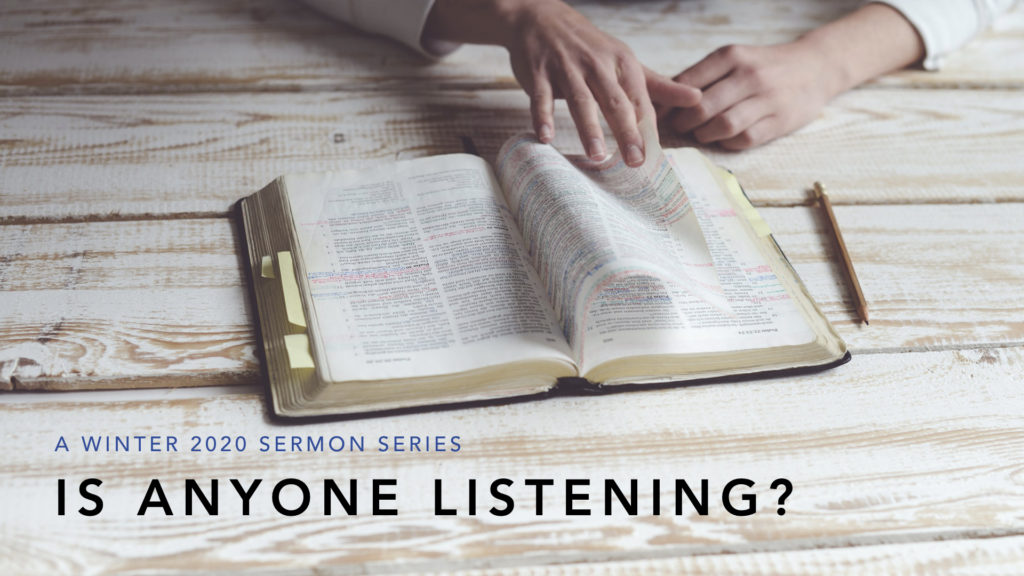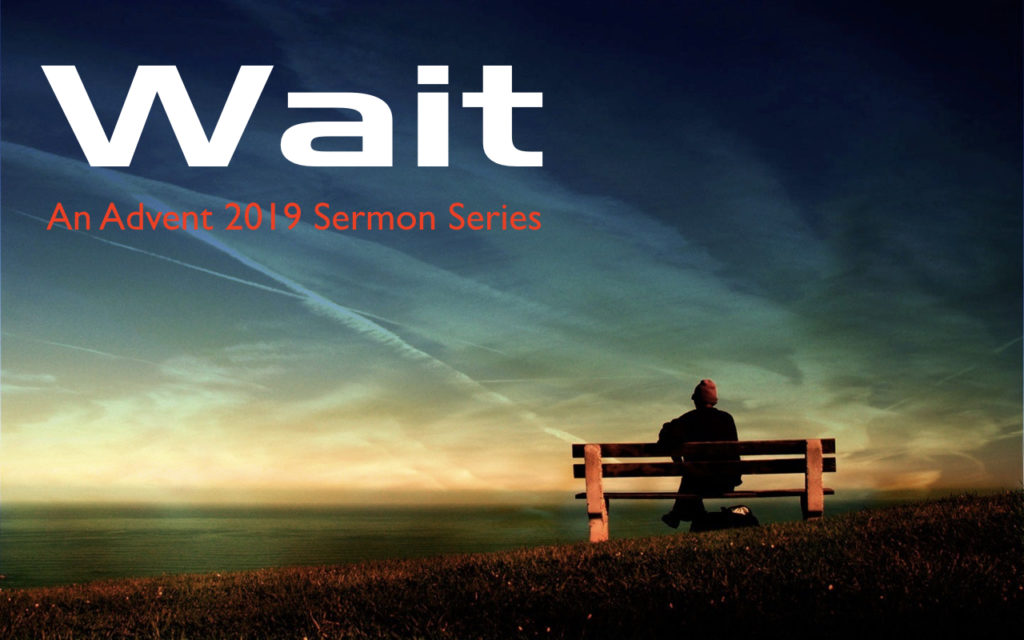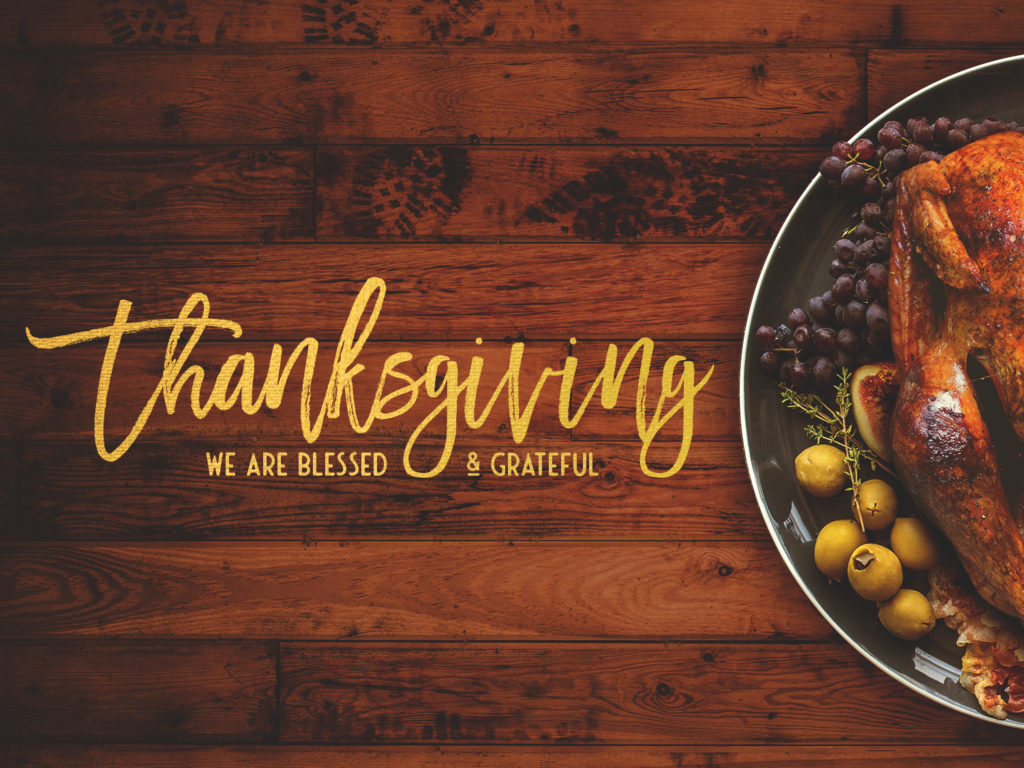
Ash Wednesday – Out of Dust

Read more...

December 2020 Pastor’s Corner – The Importance of Advent

“The special note of Advent is its primary focus on the second coming of Christ, who will arrive in glory on the last day to consummate the kingdom of God — its orientation toward the promised future. Advent…differs from the other seasons in that it looks beyond history altogether and awaits Jesus Christ’s coming again “in glory to judge the living and the dead.” — Fleming Rutledge, Advent: The Once and Future Coming of Jesus Christ
This past Sunday, November 29, was the First Sunday in Advent. It marks the beginning of the Christian year. For most of us, Advent is the season preparing us for Christmas, as if it were simply the pre-Christmas season… after all, it does end on Christmas Eve. But Advent isn’t pointing to Christmas at all, it points far past Christmas. As the quote from Fleming Rutledge above states, Advent points not to Christ’s first coming, but to his Second. While we tend to treat Advent as a “countdown to Christmas,” it’s actually far deeper and meaningful.
It seems that, each year, we are in a bigger and bigger rush to get to Christmas. Stores have been pushing the “unofficial” beginning of the Christmas season earlier and earlier, and this year has pushed it even further — I saw Christmas decorations in stores this year weeks before Halloween! It is a strange and confusing thing to see Halloween and Christmas decorations side-by-side. Jack Skellington would be furious! But I also get it — 2020 has been an amazingly difficult year (although not even close to the worst year ever. That honor goes to 536 AD. No, seriously. Look it up). After months and months of the pandemic and social distancing, a terribly contentious presidential election cycle, murder hornets, and record-breaking natural disasters, we’re all pretty desperate for a little light and a dash of Christmas cheer. While I’m personally a staunch “no Christmas music until after Thanksgiving” Scrooge, I won’t judge anyone who has already put up a Christmas tree, some decorations, or gone all-in on Christmas music.
But don’t rush past Advent in order to get to Christmas. While Advent has a particular emphasis on the Second Coming of Christ, it does so with its feet firmly grounded in the present reality. As Fleming Rutledge explains, “Advent contains within itself the crucial balance of the now and the not-yet that our faith requires. [T]his book will explore this theme in relation to the yearly frenzy of “holiday” time in which the commercial Christmas music insists that “it’s the most wonderful time of the year” and Starbucks invites everyone to “feel the merry.” The disappointment, brokenness, suffering, and pain that characterize life in this present world is held in dynamic tension with the promise of future glory that is yet to come. In that Advent tension, the church lives its life…The Advent season encourages us to resist denial and face our situation as it really is” (Advent pp. 7-8). The hope of Christ’s Second Coming, even the joy of celebrating his First coming at Christmas, is all the more bright and joyous because of the dark, brokenness of this present world, not in spite of it.
Advent is not for the faint of heart. But there is a gift waiting for you, if you are willing to slow down and find it. They say it’s always darkest just before the dawn…is it not the darkness of the night that causes us to appreciate the light all the more? Allow yourself to be present in the hardness and pain of 2020 and in Advent’s much-needed reminder that, one day, Jesus Christ will come back and make everything sad untrue and make everything broken whole. In doing so, we find that Christmas takes a place in our life and our hearts far more true than decorations, songs and presents.
“The light shines in the darkness, but the darkness has not understood it.” (John 1:5)
Blessings,
Rev. David Garrison
Read more...

June 2020 Pastor’s Corner – How’s This for Unexpected Irony?

Pentecost brings to a close the first half of the Christian year. The seasons of Advent, Christmas, Epiphany, Lent, and Easter trace the grand arc of God’s saving action in Jesus Christ. In addition to that rhythm, we have spent the past 90 days reading through the entire Bible. It’s felt something like a whirlwind. Then add in the chaos we’ve all experienced in our lives and our world with the coronavirus pandemic, and it’s enough to leave you dizzy, confused and probably a little overwhelmed. At this point, most all of us are yearning for just a little bit of ordinary.
The second half of the Christian year is one long season called Ordinary Time. This year, Ordinary Time begins today, June 1. As Philip Reindeers explains, ‘“Ordinary” doesn’t mean boring or second-rate but simply “everyday.” The Christian faith is not an otherworldly faith; it’s about this creation, your life, these days. Ordinary Time gives us the space to consider all the implications of God’s salvation in Jesus Christ for our day by day, week-in, week-out lives.’ As we find ourselves yearning for something of the ordinary in these very extraordinary times, the Christian calendar offers an invitation to consider the implications not just of all that God’s salvation in Christ means for our daily lives, but also how this pandemic is impacting us as well — and perhaps even to ask how does the Gospel inform and affect our understanding of the pandemic’s impact?
So here’s what I want you to do, God helping you: Take your everyday, ordinary life—your sleeping, eating, going-to-work, and walking-around life—and place it before God as an offering. Embracing what God does for you is the best thing you can do for him. Don’t become so well-adjusted to your culture that you fit into it without even thinking. Instead, fix your attention on God. You’ll be changed from the inside out. Readily recognize what he wants from you, and quickly respond to it. Unlike the culture around you, always dragging you down to its level of immaturity, God brings the best out of you, develops well-formed maturity in you. (Rom. 12:1–2 MESSAGE)
Blessings,
Rev. David Garrison
Read more...

April 2020 Pastor’s Corner – The Conundrum of the Cluster

The Conundrum of the Cluster
The Church Scattered
The Church Closed. Or is it?
A couple of years ago, God gave my associate pastor a vision of our church having transparent walls. For two years, we have been wondering how on earth God was going to turn stone and stained glass into transparent walls. We got the interpretation today. He’s making them transparent by locking our doors. Suddenly people will be able to see in from the outside! May God make transparent all the walls of our churches, that the world may know the Good News of Jesus Christ… He has been preparing us for this since November. We just didn’t understand what he was saying until now. Our church is being called to love and serve one another. We are the church sent out, not the church closed!
The Church Sent Out
Rev. David Garrison
Read more...

Dander, Discipline, and Decisions

Paul faced many of the same challenges we face today and he reminds us in Ephesians 6:12 “We are not fighting against flesh and blood enemies, but against evil spirits…” In the First Battle of Manassas some of Thomas Jackson’s troops broke ranks and charged. At first they made some gains against the enemy but soon where overtaken and overcome. When asked about it later Jackson’s reply was “It’s good to have your dander up, but it is discipline that wins the day.” The words dander and discipline are very effective in our spiritual warfare against the Devil.
Taking the Bait
Social media is rife with bait. The Devil dangles it and we bite down…hard. As Christians, we are called to evaluate what we post and how we respond to the comments of others. Several questions will help us do this? Do these remarks glorify God? Does this unite of divide? Are we exercising the right of free speech to voice an opinion, win an argument, impress others with clever banter or are we trying to advance the kingdom of God? Proverbs 4:22 tells us that God’s words to us bring life and healing.
Jesus never used the tactics of embarrassment, guilt or shame. To the tax collector, Matthew, Jesus extended the hand of fellowship, dinning with Matthew and his friends. (Matt 9:9-13) To the woman caught in adultery, Jesus extended mercy. “Go and sin no more.” (John 8:1-11) To the woman at the well, Jesus offered refreshment – “I will give you living water.”(John 4:7-28)
How Many Times?
How many times will we take the bait? How many times will we allow ourselves to be offended or to offend before we realize that once again we have allowed the Devil to influence our thought and emotions? How many times will we travel down the path of destroyed relationships before wising up to the Devil’s tactics? Thomas Jackson’s advice serves well here. It is good to get your dander up, to become feisty, have little spunk when determining in our hearts that we will no longer be pawns in the Devil’s game of divide and conquer.
Choose Your Hard
Sometimes life gives us choices. It is not easy to exercise. Neither is it easy managing health issues that might have been avoided or delayed by exercising. Choose your hard. It’s not easy implementing a regular time for Bible Study and prayer into our daily routines, but neither is it easy living with anxiety, disappointment, and uncertainty. Choose your hard. Thomas Jackson was right – discipline wins the day. Jesus said in his Sermon on the Mount, “If your right hand causes you to offend, cut it off.” Should he be living today, he might have said, “If social media causes you to offend or be offended, cut if off.” It is hard to refrain from social media. It is hard to repair relationships damaged via social media or live with feelings hurt by comments made on-line. Choose your hard.
Discipline requires action. Ephesians 4:31-32 say-, ”Get rid of all bitterness, rage, anger, harsh words and slander, as well as all types of evil behavior. Instead, be kind to each other, tenderhearted, forgiving one another, just as God through Christ forgave you. Colossians 3:12-15 has a similar message. ”Since God chose you to be holy people he loves, you must clothe yourselves with tenderhearted mercy, kindness, humility, gentleness and patience. Make allowances for each other’s faults and forgive anyone who offends you. Remember, the Lord forgave you, so you must forgive others. Above all, clothe yourselves with love, which binds us all together in perfect harmony. And let the peace that comes from Christ rule in your hearts. For as members of one body you are called to live in peace.” Proverbs 4:23-27 says, “Guard your hearts above all else, for it determines the course of your life. Avoid all perverse talk; stay away from corrupt speech. Look straight ahead and fix your eyes on what lies before you. Mark out a straight path for your feet; stay on the safe path. Don’t get sidetracked; keep your feet from following evil.” Keep, guard, avoid, look, clothe, fix- action verbs galore. Discipline requires action.
Stay full
Read more...

Reading the Bible as a Single Book – A February 2020 Table Talk Series

Read more...

January 2020 Pastor’s Corner – Is Anyone Listening?

Is Anyone Listening?
Tuning In
I was in the Spirit on the Lord’s day, and I heard behind me a loud voice like a trumpet saying, “Write what you see in a book and send it to the seven churches, to Ephesus and to Smyrna and to Pergamum and to Thyatira and to Sardis and to Philadelphia and to Laodicea.” (Rev. 1:10–11)
The Word That Speaks
For the word of God is living and active, sharper than any two-edged sword, piercing to the division of soul and of spirit, of joints and of marrow, and discerning the thoughts and intentions of the heart. (Heb. 4:12)
Rev. David Garrison

Read more...

Pastor’s Corner – December 2019

“Return, O LORD! How long? Have pity on your servants!” — Psalm 90:13
The Christian calendar begins, not with January 1st, but instead with the first Sunday in Advent. It’s an interesting decision that the early church fathers made in doing this. Interesting because the Christian year begins not with resolutions and activity, but with waiting. Advent is an intentional season of preparation and pause, a time to reflect and prepare for the celebration of the coming of the Lord’s Messiah, Jesus Christ. There is great wisdom in this decision, particularly for our current times. We live in a culture of hurry and rush and activity, the last thing we want or like to do is wait for anything.
By starting the year with a season of waiting, we are invited to settle into a different rhythm of life and living, a rhythm that is ultimately about trust. Trusting in the God who created Time, trusting in the One who has set His plans in motion and will see them through, trusting that there is One who knows and understands more than we do, trusting that He is good and that He is love.
So the Christian calendar begins with a reminder that there is a holiness and a righteousness in waiting. But there is a hard-ness and challenge in waiting as well. The Psalmists cry out, with great regularity, “How long, O Lord?” Even as they wait on the Lord, they express their frustration, their discontent. And in that we are shown that there is such a thing as a holy discontent.
But as much as we are waiting to celebrate the birth of our Savior, the season of Advent points to an even more significant event, an event most of us usually forget is yet to and actually is going to happen. The Hebrews waited over 500 years for the Messiah to come the first time. We’ve been waiting nearly 2,000 years for him to return. May our lives be lived with the faith that comes from knowing our Savior’s return is imminent, with the hope that comes from knowing that what is broken will soon be made right, and with the love for those who don’t yet know that their Messiah has already come once and will come again.
“He who testifies to these things says, “Surely I am coming soon.” Amen. Come, Lord Jesus!” — Revelation 22:20
Blessings,
Rev. David Garrison
Read more...

Pastor’s Corner – November 2019

So then, just as you received Christ Jesus as Lord, continue to live in him, rooted and built up in him, strengthened in the faith as you were taught, and overflowing with thankfulness. (Col. 2:6–7)
Rev. David Garrison
Read more...

Pastor’s Corner – October 2019

But if there is no resurrection of the dead, then not even Christ has been raised. And if Christ has not been raised, then our preaching is in vain and your faith is in vain… And if Christ has not been raised, your faith is futile and you are still in your sins. Then those also who have fallen asleep in Christ have perished. If in Christ we have hope in this life only, we are of all people most to be pitied. (1 Cor. 15:13–14, 17–19)
Rev. David Garrison
Read more...
